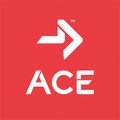March is National Nutrition Month® (NNM), an annual campaign from the Academy of Nutrition and Dietetics (formerly the American Dietetic Association). This year’s theme, “Personalize your Plate,” invites people to learn about making informed food choices and developing healthful eating and physical-activity habits.
Because there is no single approach to optimal nutrition, programming should be tailored to meet a client’s needs. To account for unique bodies, backgrounds, preferences and goals, NNM outlines four strategies to implement individualized healthful eating plans:
- Cooking and Prepping
- Meal Planning
- Varying a Diet
- Visiting a Registered Dietitian (RD).
For those wanting to adopt healthier eating habits, personalization is key. The newly released 2020-2025 Dietary Guidelines for Americans (DGA) provide accessible nutrition advice and a sensible starting point for most Americans. The DGA can be viewed as the top of a funnel, while the end of the funnel (the small hole) represents a realistic, personalized nutrition plan.
So, what approaches work best to narrow the funnel? Here are four step-wise strategies, adapted from the NNM website, that your clients can use throughout the month (and beyond) to build individualized and long-term habits for healthy eating.
Week 1 Goal: Plan Meals for the Week
Planning a dinner menu for the week is a keystone habit for healthy eating. Ten minutes of planning each week removes the energy associated with making decisions in the evening when you are tired and hungry. Further, it helps create a shopping list for the week. “Theme Nights” can ease the planning; for example, consider Meatless Mondays, Taco Tuesdays, Slow-Cooker Wednesdays, Stir Fry Fridays, and Take-out Saturdays, with Thursdays and Sundays as leftover nights.
Tip: Place a white board or chalk board in the kitchen with the days of the week as a cue to create a weekly dinner plan.
Week 2 Goal: Try a New Fruit or Vegetable
Variety from foods can increase nutrient and antioxidant intake, potentially improving gut health and lowering overall inflammation. When creating a shopping list (based on the weekly menu), encourage your clients to expand their range by including a “new” fruit or vegetable they haven’t yet tried. Further, only purchasing groceries from a specified list can limit impulse buys, which usually include less-nutritious foods.
Tip: Try less-common fruits and vegetables such as dragon fruit, star fruit, flowering kale, rainbow chard, baby bok choy, rainbow carrots, purple potatoes and jack fruit, and herbs such as dill, coriander and rosemary.
Week 3 Goal: Try a New Recipe
Your clients know they should eat healthier, but do not always know how. While expanding the palate with new foods, encourage them to try new recipes as well, especially those incorporating vegetables as the main ingredients.
Tip: When trying a new recipe, sit down and eat as a family (or group of roommates). Sitting down and connecting while eating with family or friends has been associated with a cascade of healthy behaviors.
Week 4 Goal: Consult a Health Professional
NNM recommends consulting with a registered dietitian (RD), who are health professionals credentialed to assess nutrition status and create meal plans. Fortunately, improvements in telehealth make seeking expert assessment and advice a few clicks away. Unsure where to start? Speak to a primary care physician first, as they can write referrals for RDs and other health and exercise professionals.
Tip: Encourage your clients to take a moment for honest self-reflection to determine what is their largest barrier to achieving their goals: fitness, nutrition, medical/health status or behavior modification?
Adopting healthy habits during NNM month may resemble New Year’s resolutions, in that many people use the first of the year to spark motivation for improving fitness and nutrition. Yet, by February first motivation has dissipated and prior habits have reestablished. Thus, the question to ask is how your clients can maintain a relatively healthy eating pattern—through March and beyond—when life stressors overwhelm and diminish motivation? Willpower is not the answer; nor can the answer be found in a motivational post or quote.
Rather, remind your clients that the answer is to gradually adopt new habits and strive for progress, rather than perfection. It also includes ditching the idea that nutrition is binary (one thing or the other). Food, diets and eating behaviors are not “good” or “bad.” Nutrition exists on a continuum, as some foods are more nutritious than others and certain habits contribute to overall health more than others. People simply slide back and forth on this scale, sometimes eating ideal amounts of nutritious foods and sometimes overconsuming the less-nutritious foods. Your goal as a health and exercise professional is to nudge your clients toward the “more nutritious” end.
The final step is to foster a growth mindset in your clients. As described in Mindset, by Carol Dweck, individuals with a “growth” mindset (as opposed to a “fixed” mindset) embrace challenges, persist in the face of setbacks, welcome effort and learn from criticism.
You can help your clients foster a growth mindset for positive behavior change by encouraging them to:
- Focus on process, not outcomes
- View challenges and effort as the path to mastery
- Find inspiration in the success of others
- Avoid defining themselves based on results
- Be willing to fail, to be wrong and to start over again while keeping in mind the lessons they’ve learned
Personalizing Your Plate appreciates that everyone has a different starting point and, therefore, a different goal, along the more/less-nutritious continuum. For more information and to download toolkits that include tip sheets, activities, press releases and planning materials, visit the NNM website.
 by
by 










 by
by